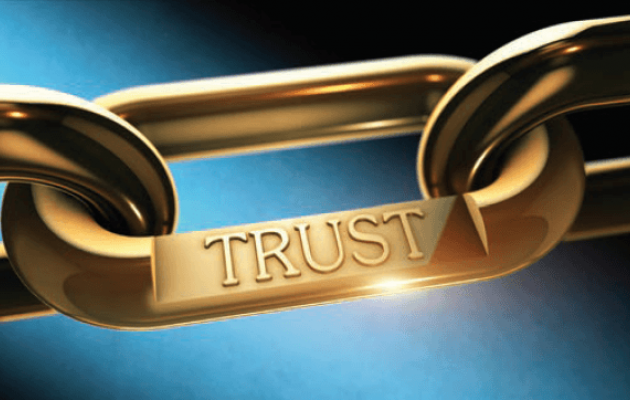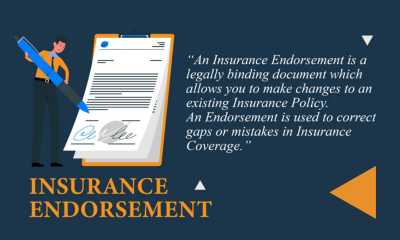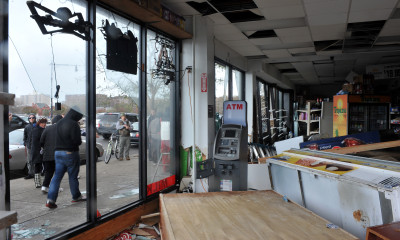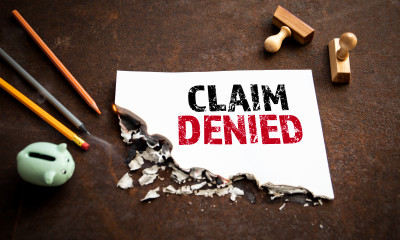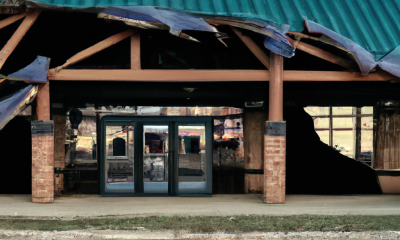Trusted Advisors — Worth Their Weight in Gold
Remember when your career began and you first started representing clients? As you grew in your career, so too were your clients growing in their respective businesses. And as you both navigated down life’s path, at some point, you became MORE to your client. More than just a practitioner who provides them with specific expertise from time to time. They began to think of you as a Trusted Advisor, someone they could turn to in their time of need REGARDLESS of what your practice area or expertise might be!
As a Trusted Advisor, you have developed relationships with your clients such that they trust who you are and how you think. So when your client turns to you on one of the worst days of his or her life, separate from a death or an illness; when their business they rely on to feed their family, and those of their employees as well, is interrupted by a disaster that comes out of nowhere, what do you tell them? What do you say?
First and foremost, you need to comfort them. Hoping there is no loss of life or injury, tell your client that “what was broken can be fixed;” “what is destroyed can be replaced.” Second, re-focus them on their new reality and explain to them that the answer to restoring normalcy to their life and livelihood lies squarely in knowing how to use their insurance policy to obtain the best possible recovery.
To most people, their insurance policy simply covers all the things that it says it will right there, in plain English. However, as you read the detailed paragraphs and sections contained within, you will see that the plain English is specialized language written by the insurance carrier. This contract contains certain provisions that will affect the claim.
Few policyholders review their insurance policy when it is obtained. Now that they have experienced a major loss, knowing how to guide them through the claim process, while they are amid chaos, confusion and emotionality, is critical. Being able to save your client from making dangerous assumptions about their coverage is equally as critical.
Think about COVID-19, which has provided many of us with an all-too-real example of what can happen when we make assumptions about how our insurance will serve us during disastrous events. (View this issue of Insights for Your Industry® “Human Hurricanes: Why Insurers May Treat Riot Claims Different Than Pandemic Claims” for more information).
Unless you’re used to reading and analyzing insurance policies, the language may be difficult to understand and parse together. Without a lot of property claim experience, you may find it challenging to figure out what exactly is and what is not covered in a specific situation. Complicated, to say the least!
Even if your client has all the right coverages, does he or she know all their rights and obligations? Does your client know all of the affirmative obligations they are responsible for? Does your client understand how to fill out the time-sensitive and sworn legal statements required to ensure they receive a “fair and just settlement”? More importantly, do you?
Sometimes the Trusted Advisor needs a Trusted Advisor! Steven Covey, author of The 7 Habits of Highly Effective People, said “Always surround yourself with people who are even more talented and competent than you.” Having someone that you can turn to as your Trusted Advisor during those critical times when your clients turn to you is valuable.
In this article, some important questions have been posed to you as your clients’ Trusted Advisor. In the series of articles that follow, we will continue to discuss how you can help your clients navigate through a property loss claim:
- In the next article, ideas will be shared about how your clients can reassess the assumptions they’ve made about how disasters could impact their business, to determine where to focus in both the short and long term. This will enable them to determine what risk-management strategy makes the most sense for each risk.
- In the third article, the focus will shift to what steps to take, based on your client’s reassessment of their assumptions, in order to reevaluate and reprioritize their risks, and recognize what actions can and should be taken before a loss occurs. For example, this exercise may lead to changes to the coverages in their current insurance policy.
- In the final article in this series, some ideas will be shared about recovery from a disaster —beginning with how your clients can change their mindset from “how can we get back to where we were before?” to “how can we come through this disaster stronger and more competitive than ever?”
Life is full of surprises. Even the most thoughtful preparations are unlikely to be enough to handle them all. So, when your clients are facing some of the most difficult moments in their lives, you can play a significant role in helping them recover.
Download this blog as an eBook by clicking here.
As the Midwest’s largest and oldest public adjusting firm, Globe Midwest™ Adjusters International’s core focus is exclusively representing property and business owners, during the insurance claim process, to maximize and expedite our clients’ insurance claim settlement. With offices in Southfield and Grand Rapids, Michigan, Chicago, Illinois, and Appleton, Wisconsin we are experienced with the types of natural disasters that strike the Midwest, the companies that insure here, and how local claims are handled.
About the Authors
Stuart Dorf, JD is a Senior Vice President at Globe Midwest™ Adjusters International. He specializes in exclusively representing commercial property and business owners during the insurance claim settlement process. Mr. Dorf is a member of the Oakland County Bar Association Real Estate Committee and a member of the Michigan and National Associations of Public Adjusters. He is a licensed instructor and also presents insurance courses certified by the State of Michigan for continuing education credits.

